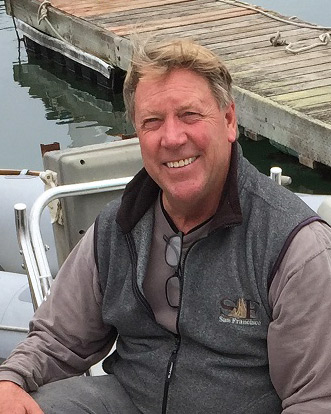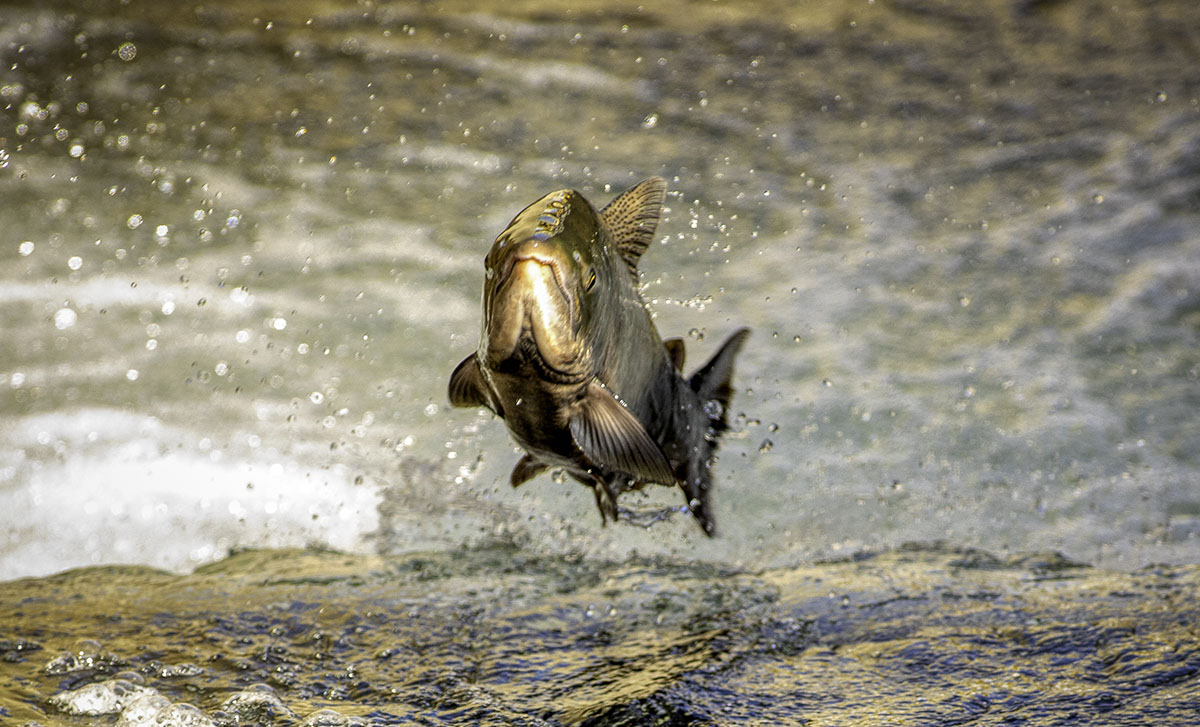 Welcome to Five Questions, a new (hopefully) weekly series that will pose five questions to folks working on California water issues. The series kicks off with John McManus, president of the Golden State Salmon Association, which bills itself as California’s leading voice for salmon protection and restoration, particularly in the Bay-Delta ecosystem. GSSA’s board represents the entire California salmon community, including commercial and recreational fishermen, charter boat skippers, inland river guides, restaurants, fishing manufacturers and retailers, tribal members and more. I asked Mr. McManus five questions about salmon management in California.
Welcome to Five Questions, a new (hopefully) weekly series that will pose five questions to folks working on California water issues. The series kicks off with John McManus, president of the Golden State Salmon Association, which bills itself as California’s leading voice for salmon protection and restoration, particularly in the Bay-Delta ecosystem. GSSA’s board represents the entire California salmon community, including commercial and recreational fishermen, charter boat skippers, inland river guides, restaurants, fishing manufacturers and retailers, tribal members and more. I asked Mr. McManus five questions about salmon management in California.
1. What do you think California should be doing to better protect salmon?
Protecting and enhancing river flows, especially in the spring when baby salmon need a lift to exit the Central Valley. But also in the fall when temperatures above 54.5 degrees kills incubating salmon eggs. Salmon are one of several species screaming that our rivers are being over diverted much too often. The state can reverse this but needs political will and courage.
2. Do you think recreational fishing impacts endangered species such as salmon?
The data are clear that fishery managers who oversee ocean and inland fishing use science to steer the fishery to avoid catching endangered species. Although it’s not 100 percent, fortunately it’s very close. We know what the problems are for endangered species, including salmon, and primarily it comes down to over diversion of the rivers, which is doing great harm to fish, wildlife and the environment.
3. How are declining salmon populations affecting commercial salmon fishermen?
The time and areas open to commercial fishing are being restricted more and more to avoid contact with a few specific salmon runs, even though other runs may be plentiful. Less time and area to work means less income which makes it harder for working fishermen and women to pay the rent or mortgage and keep food on the table for their kids. Communities along the coast that rely on commercial fishing as a major part of their local economy are hurt as well as are all Californians who appreciate the coastal heritage that is a key part of our state.
4. Are you supportive of the plan to place salmon in the McCloud River above Shasta Dam?
We are supportive if it’s done in concert with the Winnemem tribe whose homeland is the McCloud. There’s no dispute that conditions still exist in the McCloud that are good for salmon. We’re grateful to the National Marine Fisheries Service for its work on this issue. History is clear that early Californians killed many of the Winnemen tribe and stole their land and water, as they did with many California tribes. But the decendants are still with us and the Winnemen’s knowledge of their own land and water must be respected.
5. What do you think is the role of predation on salmon in the Delta?
Huge. As UC Davis scientists who have studied it closely have observed, because of the huge reduction in outflow of Central Valley rivers through the Delta to the Bay caused by diversions, the Delta today more resembles a warm lake in the SE United States than it does its historical self. We didn’t have all of the predatory fish we have now until the rivers were diverted and blocked from providing their ecological benefits. Basically, humans created perfect conditions for predators in the Delta which has greatly amplified predation.







